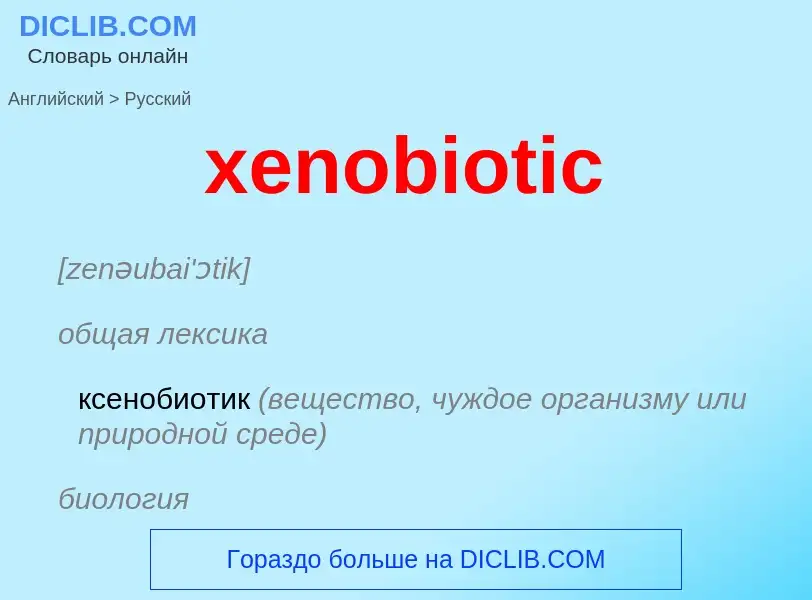Traduzione e analisi delle parole tramite l'intelligenza artificiale ChatGPT
In questa pagina puoi ottenere un'analisi dettagliata di una parola o frase, prodotta utilizzando la migliore tecnologia di intelligenza artificiale fino ad oggi:
- come viene usata la parola
- frequenza di utilizzo
- è usato più spesso nel discorso orale o scritto
- opzioni di traduzione delle parole
- esempi di utilizzo (varie frasi con traduzione)
- etimologia
xenobiotic - traduzione in russo
[zenəubai'ɔtik]
общая лексика
ксенобиотик (вещество, чуждое организму или природной среде)
биология
чужеродное вещество (организму)
существительное
биология
ксенобиотик
чужеродное (организму) вещество
[zenəu'dʒenik]
общая лексика
ксеногенный
относящийся к другому биологическому виду (напр. о трансплантате)
биология
экзогенный
принадлежащий к другому роду
синоним
Definizione
Wikipedia
A xenobiotic is a chemical substance found within an organism that is not naturally produced or expected to be present within the organism. It can also cover substances that are present in much higher concentrations than are usual. Natural compounds can also become xenobiotics if they are taken up by another organism, such as the uptake of natural human hormones by fish found downstream of sewage treatment plant outfalls, or the chemical defenses produced by some organisms as protection against predators.
The term xenobiotics, however, is very often used in the context of pollutants such as dioxins and polychlorinated biphenyls and their effect on the biota, because xenobiotics are understood as substances foreign to an entire biological system, i.e. artificial substances, which did not exist in nature before their synthesis by humans. The term xenobiotic is derived from the Greek words ξένος (xenos) = foreigner, stranger and βίος (bios) = life, plus the Greek suffix for adjectives -τικός, -ή, -όν (-tikos, -ē, -on).
Xenobiotics may be grouped as carcinogens, drugs, environmental pollutants, food additives, hydrocarbons, and pesticides.

